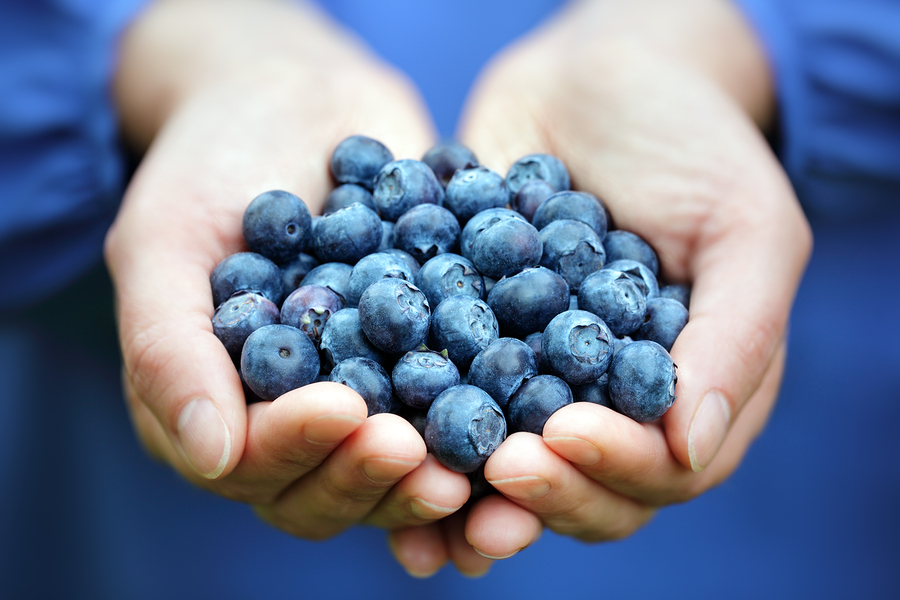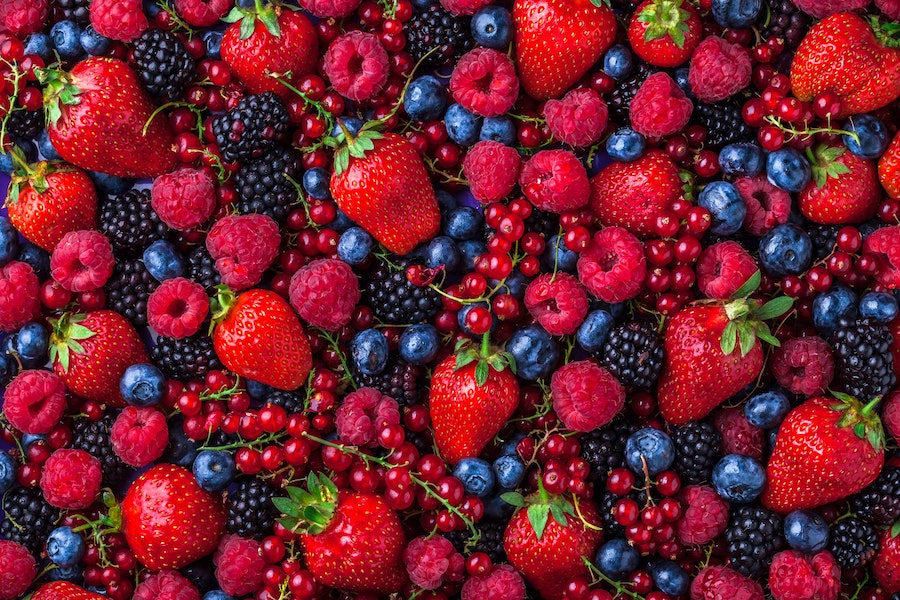4 summer berries and their amazing health benefits
Stir them into yogurt, dust them with cinnamon or eat them straight from the punnet – nothing beats tucking into a bowl of berries on a hot summer’s day.
And beyond tasting great, the nation’s favourite berries have a lot going on in the nutrition stakes too. Packed with disease-fighting antioxidants, digestion-aiding fibre and several vitamins and minerals, consumed regularly as part of an overall balanced diet, these small wonders can do a lot to support our general health.
We asked nutritionists to talk us through some of the key health benefits of tucking into fresh berries this summer…
1. Blueberries
 These little blue fruits (or deep purple, depending who you’re asking) grow in bushes that are native to North America and can add an edge to a bowl of porridge – but there’s way more to blueberries than their much-loved aesthetic.
These little blue fruits (or deep purple, depending who you’re asking) grow in bushes that are native to North America and can add an edge to a bowl of porridge – but there’s way more to blueberries than their much-loved aesthetic.
“Blueberries are one of the most nutrient-dense berries going,” says nutritionist Dr Emma Derbyshire. “They contain fibre, vitamin C, vitamin K and manganese, and they also have one of the highest levels of antioxidants – specifically anthocyanins.”
If you’re in need of a refresher, antioxidant-rich foods are important to help protect your cells against free radicals — harmful molecules produced from things like pollution, sunlight, smoke and alcohol.
“In recent years, there has also been a growing body of science [suggesting] that berries could help to offset cardiovascular diseases and help to preserve heart health,” says Derbyshire, who adds that blueberries may also help improve mood and aspects of cognitive function too. She advises trying to pack in an 80g serving of blueberries (four heaped tablespoons) per day, which counts as one portion of your five-a-day.
2. Strawberries
View this post on InstagramA berry good day #pickyourown #strawberries #wholesomecontent #summer #fourmoredaysoffreedom
The humble garden strawberry has plenty going for it. Aside from its vibrant colour, juicy texture and naturally sweet taste, Derbyshire explains that these heart-shaped fruits provide a pretty potent hit of vitamin C. “In fact, they contain more vitamin C than oranges,” she says. “Eating just seven strawberries provides the recommended daily about of vitamin C, which is important for the normal function of the immune system, along with reducing tiredness and fatigue.”
As well as helping you to bounce out of bed when the alarm goes off in the morning, strawberries have other great benefits too. “They also provide vitamin K, manganese, folic acid, potassium, riboflavin, vitamin B5, B6, copper, magnesium, fibre and phytonutrients,” says Derbshire, “so they really do make the perfect healthy snack.”
3. Raspberries
Also known as ‘Rubus idaeus’, the raspberry is a perennial fruit that belongs to the same botanical family as the rose and the blackberry. They grow on thick, leafy bushes with woody stems, and are delicious either on their own or turned into a sweet dessert coulis.
“Raspberries are full of nutrients and antioxidants,” says Derbyshire. “Just one cup of raspberries contains 12% of your recommended daily allowance of vitamin K, which is important for supporting healthy bones.”
She adds that studies have indicated that regularly eating raspberries could help prevent and manage type 2 diabetes, by helping to reduce glucose levels after consumption.
“Ranked near the top of all fruits for antioxidant strength, raspberries are particularly rich in ellagic acid, quercetin and anthocyanins – all powerful antioxidants which have proven health benefits and help protect the body against disease.”
4. Blackberries
Often found growing in hedgerows, blackberries are an aggregate fruit – which means they’re composed of several small juice-filled drupelets. They’re usually eaten straight from the hand, but there are loads of inventive ways you can add them into recipes – like whizzing them into a smoothie, mashing them to produce jam, or even stirring them into a spinach and almond salad.
“Blackberries contain a wide range of nutrients, including vitamins C and E, beta-carotene, potassium and magnesium, as well as fibre and other plant nutrients that have numerous health benefits,” says nutritionist Anita Bean.
She explains that blackberries are notable for their flavonoid content, the phytonutrients that give berries their deep colour.
Flavonoids have powerful anti-inflammatory properties and can play a role in supporting the immune system, and studies have found that regularly eating foods that are rich in them can significantly reduce your chances of catching coughs and colds.
Blackberries may also help keep your brain young. “A study in the Journal of Agriculture and Food Chemistry found that blackberry extract may provide a protective effect on brain, improve memory, learning and general brain function, as well as slowing the decline in age-related memory loss,” says Bean.
The good news is, just 10 blackberries will count towards one of your five-a-day, and they also secretly make one of the best post-workout snacks – as flavonoids can also play an important role in performance and recovery. “Studies suggest these compounds help reduce muscle soreness, muscle damage and inflammation after intense exercise, as well as speed up muscle recovery,” Derbyshire says.
So next time you’re heading for a spin class? Pack some in your gym bag.
The Press Association
Latest posts by The Press Association (see all)
- BBC to air two-part Call The Midwife Christmas special - December 23, 2024
- 6 mind sports to exercise your brain and keep you sharp - December 20, 2024
- Quiz: What classic Christmas food or drink are you? - December 20, 2024
- Leftover turkey and watercress pie - December 20, 2024
- Catherine and William choose family shot for Christmas card photograph - December 19, 2024




















